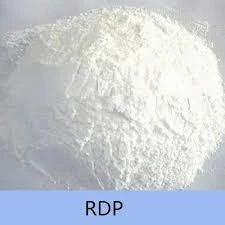
დეკ . 09, 2024 19:40 Back to list
Hydroxypropyl Methyl Cellulose Applications in Food and Pharmaceutical Industries
Hydroxypropyl Methyl Cellulose Ether An Overview
Hydroxypropyl Methyl Cellulose (HPMC) is a non-ionic, water-soluble polymer derived from cellulose, a natural polymer found in the cell walls of plants. It is widely used in various industries due to its unique properties and versatility. The molecule consists of a cellulose backbone that has been chemically modified by the introduction of hydroxypropyl and methyl groups. This modification enhances its solubility in water and elevates its functionality, making it an essential additive in different applications.
Properties of HPMC
One of the most distinguishing characteristics of HPMC is its ability to form a gel-like consistency when mixed with water. This property makes it an effective thickening agent. The degree of substitution of the hydroxypropyl and methyl groups influences its solubility, viscosity, and gel strength. Depending upon the ratio of methyl to hydroxypropyl groups in the cellulose backbone, HPMC can be tailored to suit specific requirements. This adaptability is one of the reasons HPMC enjoys widespread usage across various sectors.
HPMC is chemically stable, non-toxic, and biodegradable, which further adds to its appeal. It is compatible with a wide range of other ingredients, making it a versatile component in formulations. Its properties allow for modifications in texture, consistency, and stability of products, making it invaluable in both food and industrial applications.
Applications of Hydroxypropyl Methyl Cellulose
1. Construction Industry HPMC is commonly used in the production of cement and gypsum-based products. As a thickener, it improves workability, extends the open time, and enhances the water retention of mortars and pastes. This ensures better bonding and adhesion properties, leading to more durable construction materials.
hydroxypropyl methyl cellulose ether

2. Pharmaceuticals In the pharmaceutical industry, HPMC serves multiple purposes. It acts as a binder in tablet formulations, enhancing the mechanical strength of the tablets. It is also employed as a coating agent for extended-release formulations, as it can control the release rate of active ingredients. Furthermore, HPMC is favored in ophthalmic preparations due to its lubricating properties and compatibility with mucosal tissues.
3. Food Industry HPMC is used as a food additive to improve the texture and stability of various products. It functions as a thickener, emulsifier, and stabilizer, enhancing the mouthfeel and overall sensory experience of food items. It is also utilized in gluten-free products, providing a desirable texture that mimics traditional baked goods.
4. Cosmetics and Personal Care In the beauty and personal care industry, HPMC is valued for its film-forming and thickening properties. It is widely used in lotions, creams, shampoos, and other cosmetic products, improving texture and stability. Additionally, HPMC can act as a controlled-release agent for active ingredients, ensuring prolonged effectiveness in skincare formulations.
Environmental Impact and Safety
With growing concerns about sustainability, HPMC stands out as an eco-friendly option. Being derived from natural cellulose, it is biodegradable, which aligns with the increasing demand for sustainable materials. Moreover, HPMC is recognized as safe for use in food, pharmaceuticals, and cosmetics by regulatory bodies such as the FDA and EFSA.
Conclusion
Hydroxypropyl Methyl Cellulose Ether is a multifunctional polymer that finds extensive utility across diverse industries. Its unique characteristics—ranging from thickening and binding to emulsifying—make it an invaluable ingredient in construction materials, pharmaceuticals, food products, and cosmetics. As industries continue to emphasize safety, sustainability, and efficacy, the role of HPMC is likely to expand further, underscoring its importance as a versatile and eco-friendly additive. With ongoing research and development, the potential applications of HPMC are likely to grow, reinforcing its position as a crucial component in modern formulations.
-
The Widespread Application of Redispersible Powder in Construction and Building Materials
NewsMay.16,2025
-
The Widespread Application of Hpmc in the Detergent Industry
NewsMay.16,2025
-
The Main Applications of Hydroxyethyl Cellulose in Paints and Coatings
NewsMay.16,2025
-
Mortar Bonding Agent: the Key to Enhancing the Adhesion Between New and Old Mortar Layers and Between Mortar and Different Substrates
NewsMay.16,2025
-
HPMC: Application as a thickener and excipient
NewsMay.16,2025
-
Hec Cellulose Cellulose: Multi functional dispersants and high-efficiency thickeners
NewsMay.16,2025







